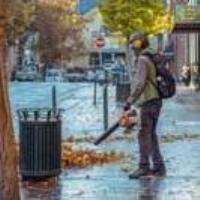
While the start of autumn can be fairly mild, now is a good time to think ahead and ensure the home is ready for when the temperature drops. Older people are more vulnerable to the effects of cold weather, and those living with a pre-existing health condition can be even more vulnerable. Guidance states that rooms that are in regular use, for example bedrooms and living rooms, should be heated to at least 18°C in colder months.
Steven Tubbritt, General Manager of Home Instead Waterford advises those with older neighbours and relatives to be on the lookout for certain signs, “With the cost of living crisis some older people might not focus their expenditure on the important things, like proper food, heating and light. Diet is important for nutrition and health, a well-stocked fridge is a good sign. Keeping the home adequately lit can prevent trips and falls, resulting in hospitalisation or worse. Candles provide a fire hazard and inadequate light. While it is not as pretty or comforting, central heating is more efficient and a safer way of heating the house than an open fire.
“These are just some things to look out for when you are visiting an older relative, friend or neighbour. A full fridge, a well-lit house and a warm environment.”
As we age our skin becomes thinner, and we lose some of the fat beneath the skin. This makes it harder to retain heat in the body. Our metabolic rate – the number of calories we need to function, decreases too. This can mean that some older people aren’t able to create enough body heat to stay at a healthy temperature. After months of not being used, it’s important to check the home’s central heating system is working before your loved one really needs it. You can do this by –
- Turning the thermostat to 30° Centigrade
- Turning up the radiators up to 4 or 5 and leave on for 30 mins
- Checking that the boiler has come on and radiators are warming up
If there’s an issue, it’s best to seek out the professional support and never attempt to fix a faulty boiler yourself. Wearing lots of thin layers, and choosing clothes made from cotton, wool or fleece material is recommended. This can help ‘trap in’ warmth, while making it easier to regulate temperature than just one bulky layer. If you’re going outside, a lot of heat is lost through the head and neck, so a hat and scarf is recommended.
Some clothes fastenings can be difficult for people with joint pain or restricted mobility. Choosing clothes with larger zip pulls or poppers may help. People with dementia can forget to dress appropriately when the temperature drops. Helping them may mean supporting them to make their own choices of warm clothing, and allowing them the time and space to dress themselves.
Fallen leaves and wet or icy pavements and paths are dangerous for everyone. However for older people who may be unsteady on their feet, and more prone to bone fractures they pose a serious risk. Older bones can also take longer to heal, and this recovery process can take its toll on both physical and mental wellbeing. Take time to check handrails and ramps around their home are secure and haven’t become brittle or rusted.
Finally, the best way to stay healthy is prevention. Everyone aged 60 and over can get a free flu vaccine and free Covid vaccine from a GP or local pharmacy. Flu can be really unpleasant, so it’s a good idea to get the jab even if you or your loved one are generally fit and healthy.
Home Instead Waterford provides an array of care services such as light housekeeping and laundry, meal preparation, transport and companionship, up to and including personal care, dementia care, post hospital care and disability care.
For further information about the services log onto www.homeinstead.ie or call 051 333966.



